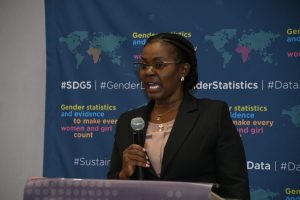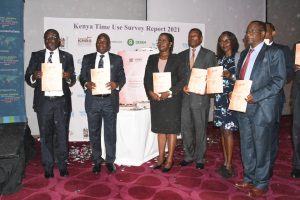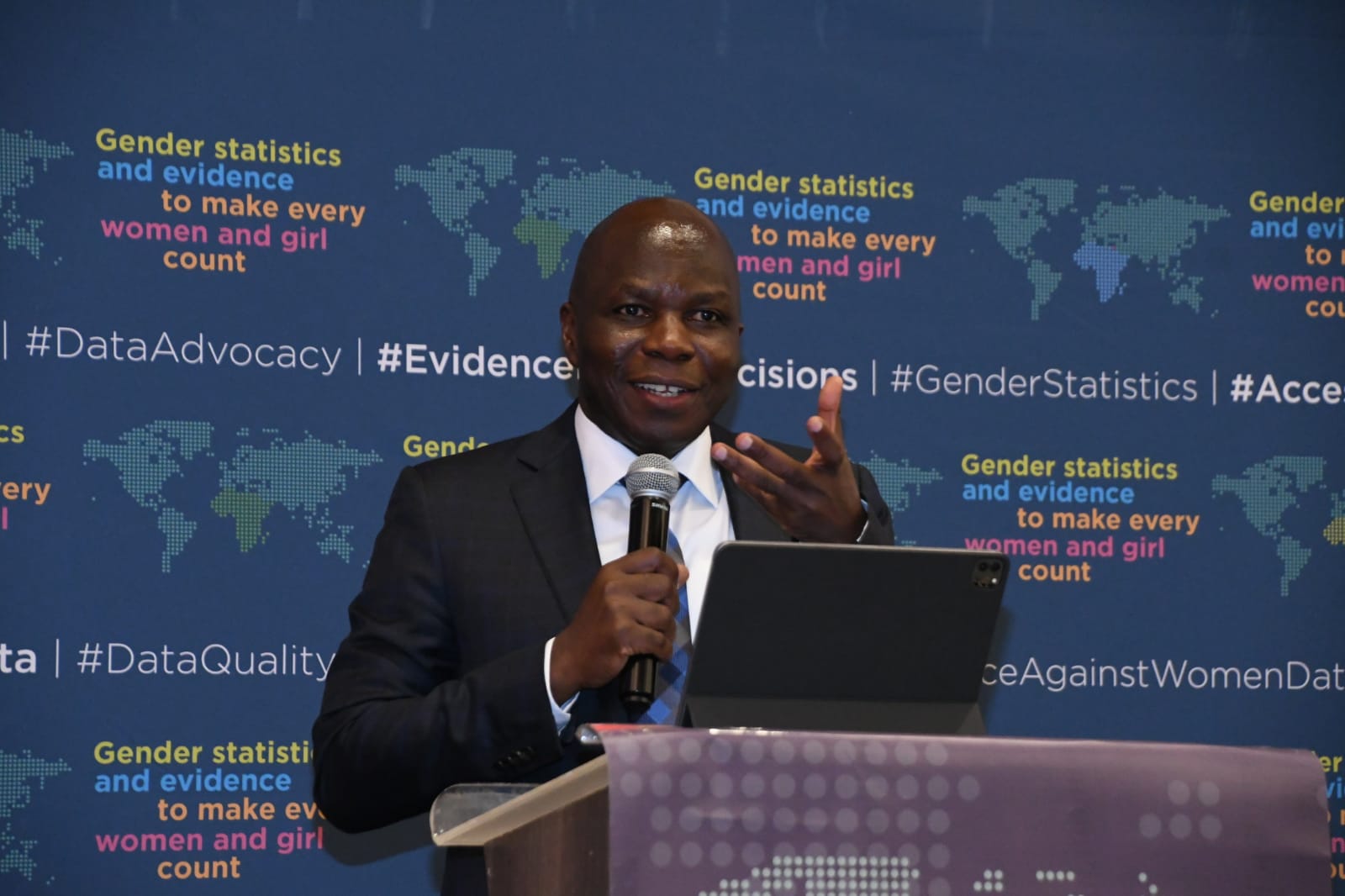The First Kenya Time Use Survey Report launched Nairobi, 18th October, 2023
Time Use has gained popularity globally in the recent past. It helps in understanding the contribution of the daily work to the economy. The main objective of carrying out this survey was to measure paid and unpaid work to accelerate the achievement of gender equality and women’s empowerment in Kenya.
The Principal Secretary for Economic Planning, James Muhati said this while he officially launched the 2021 Kenya Time Use Report on 18th October, 2023 at a Nairobi Hotel. The Survey Report also gives detailed information on how individuals spend time in their economic activities daily.
With the launch of the survey report, Kenya now joins the list of other Countries in the world who have achieved this goal such as; Korea, Sweden, Ghana, South Africa, Algeria, Mexico, Ethiopia, Tanzania and Uganda to mention a few.
The implementation of gender equality is still slow despite the global campaigns towards fast tracking the enactment process of the Sustainable Development Goal 5 (SDG 5) on Gender equality.
There is no Country in the world that achieves national development without involvement of women. “Women’s Work is Work.” To accelerate economic growth, the contribution of women to the economy must be embraced and valued in all sectors.
The African continent will achieve her goals with speed if practices that cherish women’s work are brought into perspective and balanced alongside the other priorities of economic development policies and programmes.
“The production of Kenya Time Use Survey Report was motivated by the need to measure time spent on unpaid domestic and care work, participation of women and men in System of National Accounts (SNA) and non-SNA activities. Specifically, the report provides statistics on average time spent on SNA productive activities, Non-SNA productive activities (unpaid work) and Non-Productive activities such as learning, socialization and communication; community participation and religious practices; culture, leisure, mass-media and sports practices. It brings into focus the unpaid domestic and care work, which is “work” that largely remains invisible, unrecognized and unaccounted for in decision-making.” Said Ps Muhati.
Some of the findings emanating from the Time Use Survey Report on average time spent on unpaid domestic and care work are also quite interesting to note.
For instance, persons aged 15 years and above spend three hours on unpaid work daily while on the other hand women spend approximately five hours per day which is about five times more compared to men. The proportion of time spent on the same activities in the rural areas is slightly higher as compared to urban areas for both men and women.
In conclusion, the survey results showed that women predominately spend more time on unpaid care and domestic work compared to men across all age groups.
Also present during the launch were; Anne Wang’ombe, the Principal Secretary, State Department for Gender and Affirmative Action, Betty Sungura, Chief Executive Officer, National Gender and Equality Commission, development partners, civil society and government officials among others.






